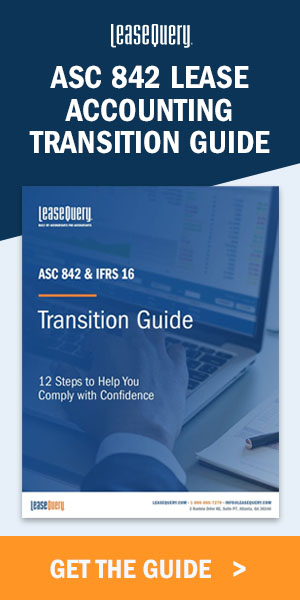This article, "FASB Proposes Delaying Effective Date of Certain Standards Due to COVID-19 Pandemic," originally appeared on CPAJournal.com.
On April 8, 2020, FASB and its staff met to discuss various issues relating to the implications of the coronavirus (COVID-19) pandemic on certain FASB accounting standards–setting activities. The board’s discussions covered the impact of the current efforts to address the effects of the pandemic on the scheduled effective dates of certain finalized FASB standards, and staff observations about technical inquiries posed to the staff related to the response to the pandemic and the effect of that response on financial accounting and reporting.
The meeting was conducted via a Livestream event. Those interested can view the on-demand version of the meeting on the FASB website (http://www.fasb.org) or FASB’s YouTube page (https://bit.ly/2xSKFfw).
Effective Dates of Finalized Standards
Acknowledging the operational challenges faced by companies in the current pandemic, the board and its staff discussed the effective dates and transition requirements of several FASB standards with the view that the board would delay implementation for a year or so. The standards discussed for delayed implementation were Accounting Standards Update (ASU) 2014-09, Revenue from Contracts with Customers (Topic 606) and ASU 2016-02, Leases (Topic 842).
Revenue recognition. ASU 2014-09 addresses revenue recognition for contracts with customers. For public companies with a December 31 fiscal year-end, ASU2014-09 had an effective date starting on January 1, 2018; for private entities with a December 31 fiscal year-end, the effective date was January 1, 2019. As noted by the FASB staff in their agenda meeting notes:
Because the guidance is effective for annual reporting periods (not interim), private companies are currently in the midst of adopting the guidance and the audit of their first set of financial statements under Topic 606 is in process for many companies.
At the April 8 meeting, FASB and its staff discussed the implementation of the revenue recognition standard specifically for the franchise industry. According to the meeting notes, franchisors have inquired about delaying the implementation of the revised guidance for the recognition of revenue associated with the initial franchise fee paid to a franchisor in exchange for establishing a franchise relationship. This fee is typically paid in a lump sum to the franchisor when the franchise agreement is signed.
Prior to the revised revenue recognition guidance, the franchisor reported revenue related to the initial franchise fee when the related franchise began operations, regardless of the inherent timing of services provided by the franchisor. Consistent with the revised revenue recognition approach of ASU 2014-09, the franchisor must now consider the pre-opening services provided to the franchisee to determine whether such services include any distinct goods or services associated with the amount received.
Finally, FASB and its staff considered delaying the implementation date of ASU 2014-09 related to franchisor recognition of the initial franchise fee.
Leases. FASB issued ASU 2016-02 in February 2016. The standard amended the prevailing financial accounting and reporting guidance for leases. For certain entities, including public business enterprises and certain not-for-profit (NFP) entities and employee benefit plans, the revised standard was effective for fiscal years beginning after December 15, 2018, including interim periods within those fiscal years. For private companies and private NFP entities, the standard was effective for fiscal years beginning after December 15, 2020, and interim periods within fiscal years beginning after December 15, 2021.
During its April 8 deliberations, FASB and its staff discussed delaying the effective date of the new leasing guidance for private companies, private NFP entities, and public NFP entities that have not yet issued financial statements.
Tentative FASB Decisions
At the meeting, the FASB decided to issue an exposure draft of a proposed ASU expressing the following FASB tentative decisions:
- Revenue recognition. With respect to the application of the revenue recognition guidance to the initial franchise fee, the exposure draft will propose delaying the effective date of Topic 606 for nonpublic business entities. The amended effective date will be “for annual reporting periods beginning after December 15, 2019, and interim reporting periods within annual reporting periods beginning after December 15, 2020.” The board decided to make the amendment optional.
- Leases. For private companies and private NFP entities, the exposure draft will propose amending the effective date of Topic 842. The proposed amended effective date will be for annual reporting periods beginning after December 15, 2021, and to interim periods within fiscal years beginning after December 15, 2022. For public NFP entities that have not yet issued financial statements, the proposed amended effective date of Topic 842 will be for fiscal years beginning after December 15, 2019, including interim periods within those fiscal years with early adoption permitted.
When issued, the exposure draft will have a 15-day comment period.
Technical Inquiries Related to COVID-19
In addition to deliberations about delaying the effective dates of Topics 606 and 842, the FASB staff summarized their observations concerning several technical inquiries related to the accounting and reporting implications of the coronavirus (COVID-19) pandemic. The related inquiries and staff observations summarized for the board were as follows.
Lease concessions. Are lease concessions related to the effects of COVID-19 required to be accounted for in accordance with the lease modification guidance in Topic 842, “Leases” (or, if Topic 842 has not yet been adopted, in accordance with the guidance in Topic 840, “Leases”)? Under such guidance, the question becomes: if a lessor grants concessions that provide enforceable rights and obligations consistent with the terms of the specific lease contract, and if those concessions are consistent with the terms of the contract, do they represent a lease modification?
For entities making this determination, the staff indicated that due to the “unprecedented and global nature of the COVID-19 pandemic, it may be exceedingly challenging for entities to determine whether existing contracts provide enforceable rights and obligations for lease concessions and, if so, whether those concessions are consistent with the terms of the contract or are modifications to a contract.”
At the meeting, the staff observed that the Topic 842 guidance “did not contemplate [lease] concessions being so rapidly executed as a result of a major financial crisis [such as that] arising from the COVID-19 pandemic.” Thus, they stated that it would be acceptable for entities to elect to account for lease concessions caused by COVID-19 and its effect on pre-existing leasing arrangements as though enforceable rights and obligations for those concessions existed, which would permit accounting for the lease modifications over the remaining life of the lease, under Topic 842 (or Topic 840, if applicable).
Interest income. The recognition of interest income gives a fact pattern in which an institution, as a way of providing financial assistance to borrowers, grants the borrowers a “loan repayment holiday” whereby the borrowers would be allowed to temporarily stop loan and interest payments. Under this fact pattern, interest would not accrue while the loan payment holiday is in effect and the loan modification would not represent a troubled-debt restructuring [Accounting Standards Codification (ASC) 310-40]. This modification would be accounted for as a continuation of the original lending arrangement in accordance with ASC Subtopic 310-20, “Receivables—Nonrefundable Fees and Other Costs.”
What accounting approach should companies take in this situation? The staff pointed out that two possible approaches could be considered in accounting for interest income related to a loan repayment transaction in which the lender provides a repayment holiday, as discussed in the given fact pattern:
- Record interest income on an accrual basis during the loan repayment holiday consistent with contractual terms
- Discontinue accrual of the interest income during the repayment holiday and resume interest income accrual when the repayment holiday ends.
The staff observed that existing authoritative literature supports both views; therefore, both views are appropriate.
Accumulated other comprehensive income (AOCI). How should companies account for amounts reported in AOCI for a cash flow hedge of a forecasted transaction that is discontinued during delays in closing the forecasted transactions as a result of COVID-19 (ASC Subtopic 815-30, “Derivatives and Hedging–Cash Flow Hedges”)?
The staff acknowledged that the guidance in Subtopic 815-30 allows that if, in rare cases, the existence of extenuating circumstances outside of the control or influence of the entity causes the forecasted transaction to be probable of occurring at a date beyond the allowable period considered in the standard, then the entity can continue to defer amounts recorded in AOCI until the forecasted transaction affects earnings.
Thus, the staff agreed that, in those rare cases, an entity should disregard the timing restrictions otherwise applicable to the forecasted transaction and continue to defer amounts previously recorded in AOCI until the forecasted transaction affects earnings. They further observed that:
[The exception discussed above] may be applied to COVID-19 –related delays in [the] timing of the forecasted transactions. Consequently, for de-designated hedges, if the forecasted transaction is probable of occurring after the additional two-month period, the entity may continue to retain amounts previously recorded in AOCI associated with that forecasted transaction until that forecasted transaction affects earnings. However, that exception only applies to situations in which the forecasted transaction remains probable of occurring. If the entity determines that it is not probable that the forecasted transaction will occur because of the effects of COVID-19, the exception would not apply and amounts previously recorded in AOCI should be reclassified into earnings immediately and disclosed in the entity’s interim and annual financial statements.
Mark-to-market accounting. The staff received inquiries about whether, in consideration of the market volatility caused by COVID-19 , they are considering (or would consider) suspending mark-to-market accounting.
The staff pointed out that the operative guidance on determining market values refers to valuation in an “orderly transaction,” which is enumerated in detail in ASC 820-10-35-54C–54J, and that “they stand ready to address any interpretive questions with respect to that guidance.”
For the technical inquiries discussed above, the staff discussion and observations are available to the public via a series of “staff-only” Q&A documents that they post on the FASB website. Such staff responses represent the views and observations of the staff and do not represent the conclusions, recommendations, or views of the board.
Those interested can view the staff’s observations regarding the inquiries discussed herein at the FASB website:
- Lease concessions: https://bit.ly/2KqaRAV
- All other staff inquiries discussed above: https://bit.ly/3btkzyh
***
Richard C. Jones, PhD, CPA, is an associate professor of accounting, taxation, and legal studies in business at the Frank G. Zarb School of Business at Hofstra University, Hempstead, N.Y.



